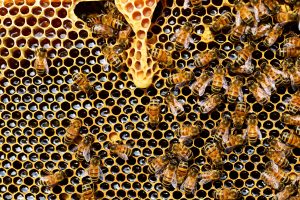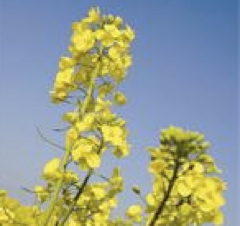We can’t bee-lieve it! It’s honey week at Big Barn

Although the temperatures are dropping just in time for the bank holiday weekend, we expect a few of you have had some lovely yellow and black coloured visitors in your gardens already and you might have seen some amazing bee swarms on your town’s local social media pages!
When you see those it’s sometimes difficult to remember that bee numbers are continually declining. But, the outrage and support at this lately has been brilliant because without these little guys life itself could cease to exist. Bees are the number one pollinators in the world which is why their existence is so key. The bees pollinate the trees by collecting their pollen and carrying to from plant to plant, the spread of pollen is how plants reproduce and in turn we get their fruits in the form of Apples, Cherries and other delicious foods. Many cities, including London, have become big pollinating cities by encouraging the urban hive. Urban hives are easy to maintain, loads of fun and at then end you get your sweet reward.

FOE bee flower
The different flavours of honey come from the local blossom in the area. For example, people may put their hives near apple trees to get the rich and powerful flavour of the apple blossom or next to a field of clover for the sweet taste of clover honey. It’s a very simple cycle but one that could not survive without the wonderful world of bees.
No story is really complete without some good facts, so here are our top facts about bees:
1. There are three types of bees in the hive: Queen, Worker and Drone. Honey bees have five eyes, and four wings that are latched into pairs by hooks.
2. Queen bees will lay as many as 2000 eggs on a good day and an average of one every 45 seconds.
3. Honey is a Hebrew word meaning enchant. Initially it was a culinary sweetener, and now is recognized worldwide as a healing ingredient in medicinal treatment.
4. Honey is 80% sugars and 20% water. Honey stored in air tight containers never spoils. Sealed honey vats found in King Tut’s tomb still contained edible honey, despite over 2,000 years beneath the desert sands.

rapeseed oil, local and good for you
5. Honey was so in demand in the eleventh century that it was a stipulation for German peasants to offer their feudal lords payment in honey and beeswax.
6. Honey bees from a typical hive visit approximately 225,000 flowers per day. Bees must visit approximately 2 million flowers and fly over 55,000 miles to make 1 pound of honey.
7. Honey is the only food that includes all the substances necessary to sustain life, including enzymes, vitamins, minerals, and water. It’s also the only food that contains pinocembrin, an antioxidant associated with improved brain functioning.
8. Honey bees never sleep, and they communicate with each other by dancing and by using pheromones.
9. Beeswax production in most hives is only about 1.5% to 2.0% of the honey yield.
10. Two tablespoons of honey would fuel a honey bee flying once around the world.
11. Honey is the ONLY food source produced by an insect that humans eat.
Plus, it’s pretty damn delicious spread on toast, drizzled over yoghurt, stirred into warm roasted parsnips, or used as an alternative to sugar. The possibilities are quite simply endless, which is why we all love it so much.
If you are interested in keeping bees yourself contact https://www.bbka.org.uk/, or alternatively for fun, facts and trivia, head over to https://www.honeyassociation.com/
They say that eating locally-made honey can help alleviate hay fever symptoms, so they best possible honey is one made just down the road. The Bigbarn marketplace is a great place to find producers and order online or have a look on the local food map for a producer near you.
If you have a favourite honey recipe that you’d like to share, or any other recipe, and would like the chance to win a prize, please video your recipe and add it to KIS (Keep it Simple) Cookery. Please have a look at existing videos here and try and keep your video less than 2 minutes long.

